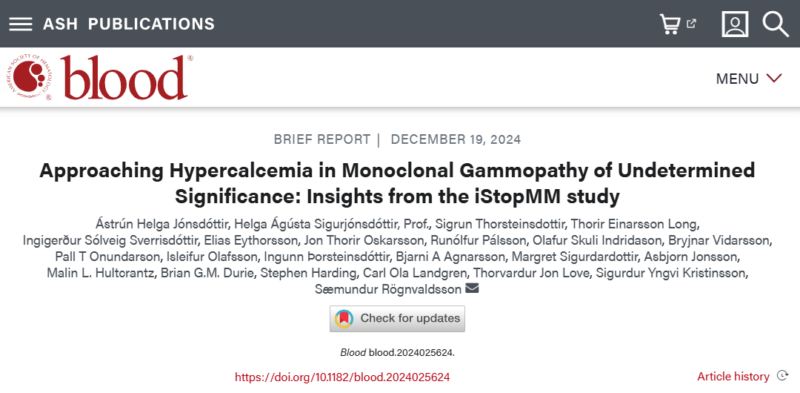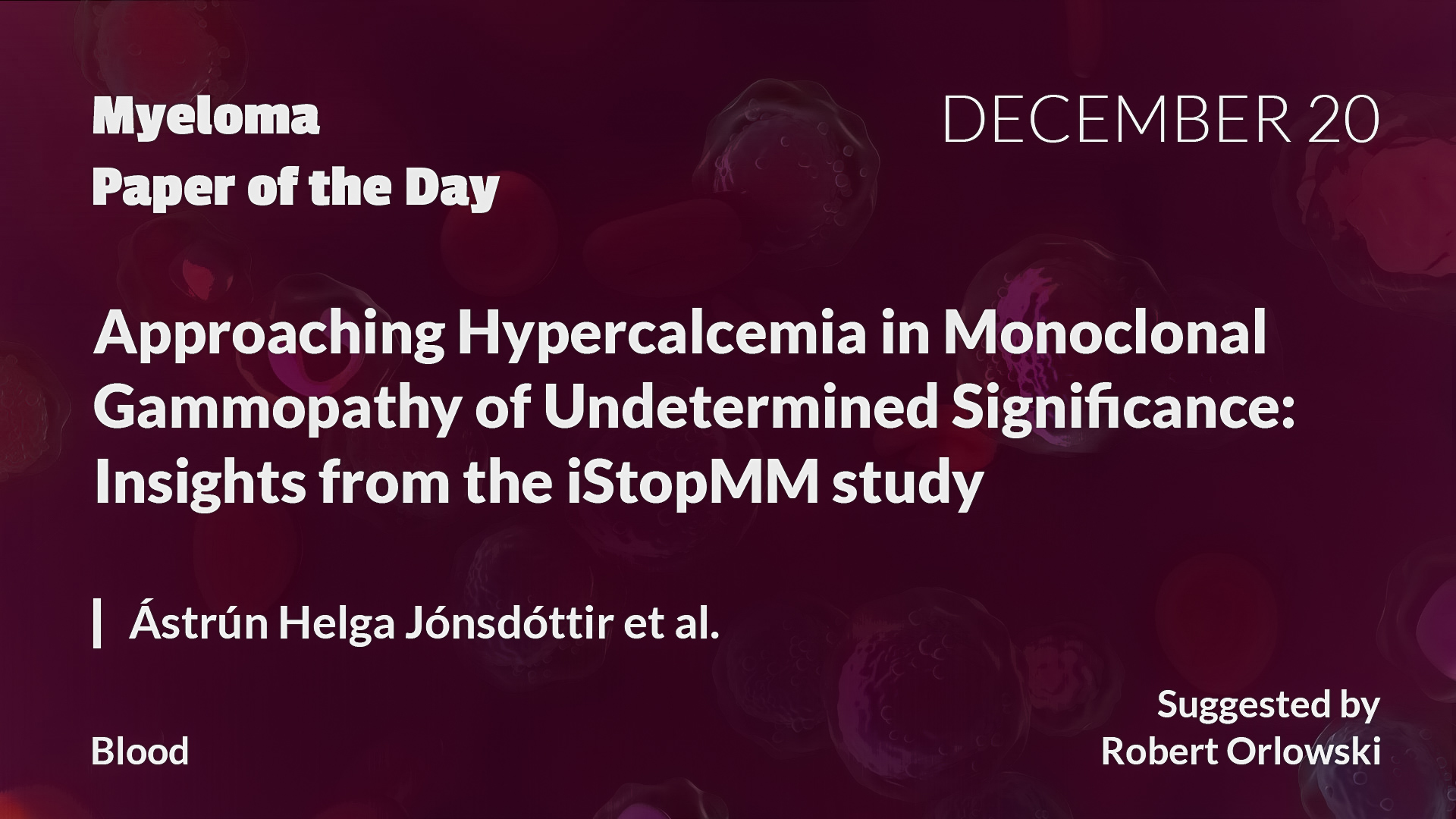Robert Orlowski shared a post on X:
“Myeloma Paper of the Day: Insights from iStopMM study on hypercalcemia in setting of MGUS indicate that most common causes were primary hyperparathyroidism (56.0%) and malignancies other than myeloma (16.0%) with only 3.2% being due to progression.”
Authors: Ástrún Helga Jónsdóttir, Helga Ágústa Sigurjónsdóttir, Prof., Sigrun Thorsteinsdottir, Thorir Einarsson Long, Ingigerður Sólveig Sverrisdóttir, Elias Eythorsson, Jon Thorir Oskarsson, Runólfur Pálsson, Olafur Skuli Indridason, Bryjnar Vidarsson, Pall T Onundarson, Isleifur Olafsson, Ingunn Þorsteinsdóttir, Bjarni A Agnarsson, Margret Sigurdardottir, Asbjorn Jonsson, Malin L. Hultcrantz, Brian G.M. Durie, Stephen Harding, Carl Ola Landgren, Thorvardur Jon Love, Sigurdur Yngvi Kristinsson, Sæmundur Rögnvaldsson.

More posts featuring Robert Orlowski.
Robert Orlowski, M.D., Ph.D., holds multiple positions at The University of Texas MD Anderson Cancer Center, including Chairman, Ad Interim Director of Myeloma, and Professor of Medicine in the Departments of Lymphoma/Myeloma and Experimental Therapeutics within the Division of Cancer Medicine.
Additionally, he chairs the SWOG Barlogie/Salmon Myeloma Committee, which is part of the National Clinical Trials Network, dedicated to advancing new therapies and understanding the biology of myeloma.
Dr. Orlowski’s expertise lies in both clinical practice and scientific research, with a particular focus on translating laboratory discoveries into effective treatments for patients. He investigates drug resistance mechanisms in myeloma and seeks to identify predictive biomarkers for treatment response.
Notably, his past contributions include leadership roles in developing proteasome inhibitors like bortezomib and carfilzomib, as well as monoclonal antibodies such as daratumumab and elotuzumab.
